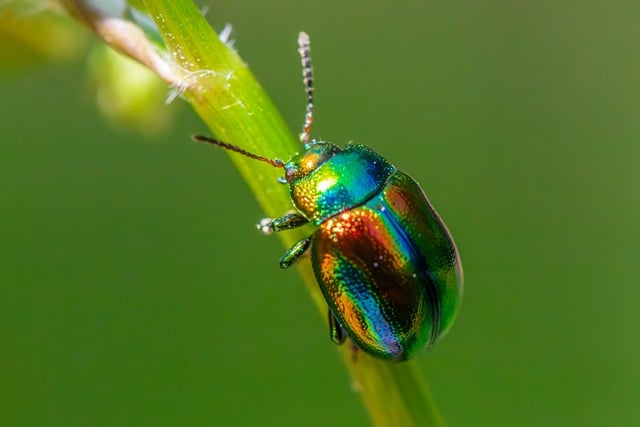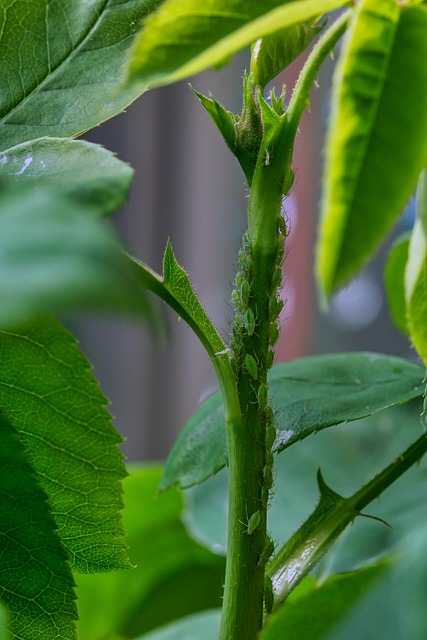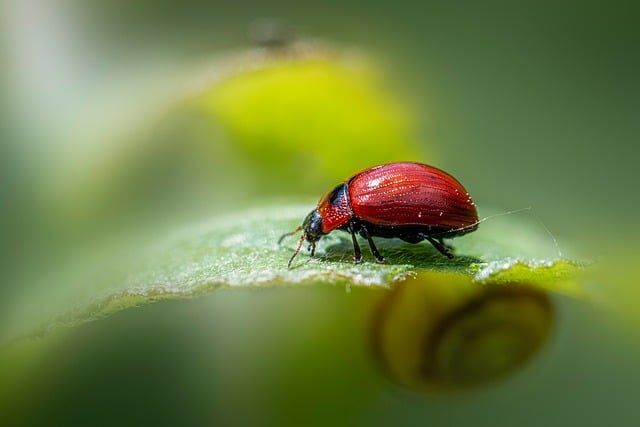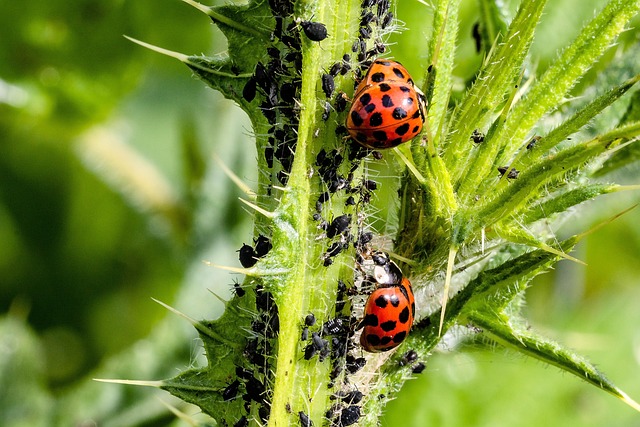Castle Rock gardeners face seasonal pest challenges requiring sustainable management strategies. Understanding pest patterns guides eco-friendly methods like IPM, organic pesticides, companion planting, and beneficial insects to maintain ecosystem balance and ensure fresh vegetable harvests. Year-round commitment includes strategic planning, preventive measures, and proactive organic solutions for successful, healthy gardens.
In Castle Rock, seasonal pest management is key to maintaining vibrant, healthy vegetable gardens. Understanding the unique challenges posed by various pests throughout the year empowers gardeners to employ effective, eco-friendly strategies. This article delves into understanding seasonal pests specific to Castle Rock gardens, exploring sustainable practices that promote balance without harmful chemicals. We also offer practical tips for seasonal vegetable garden care, ensuring successful harvests in alignment with sustainable pest control methods.
- Understanding Seasonal Pests in Castle Rock Gardens
- Eco-Friendly Methods for Sustainable Pest Control
- Implementing Effective Seasonal Vegetable Garden Care
Understanding Seasonal Pests in Castle Rock Gardens

In Castle Rock, understanding seasonal pests is key to implementing effective sustainable pest management for vegetable gardens. With its unique climate and ecosystem, specific insects and animals tend to proliferate during certain times of the year, posing challenges to gardeners cultivating vegetables. By recognizing these seasonal patterns, homeowners can proactively employ eco-friendly methods to protect their crops.
For instance, in spring, aphids and slugs often emerge, while summer brings an influx of beetles and caterpillars. Fall and winter see increased activity from rodents and stink bugs. Adopting sustainable pest management practices, such as regular monitoring, integrated pest management (IPM) strategies, and organic pesticides when necessary, can help maintain a balanced ecosystem in Castle Rock gardens while ensuring a bountiful harvest of fresh vegetables.
Eco-Friendly Methods for Sustainable Pest Control

In the pursuit of sustainable pest management for vegetable gardens in Castle Rock, eco-friendly methods are gaining popularity as a kinder approach to controlling pests. These natural solutions prioritize minimizing environmental impact while effectively managing garden invaders. One powerful tool is companion planting, where specific plants are strategically placed together to deter pests naturally. For instance, marigolds and garlic are known to repel nematodes and aphids, respectively. Additionally, introducing beneficial insects like ladybugs and lacewings can help control aphid populations by feeding on them, offering a biological alternative to chemical pesticides.
Another sustainable approach involves the use of organic pesticides derived from natural sources. Neem oil, for example, is a plant-based product that disrupts the growth and reproduction of various pests. Similarly, diatomaceous earth, made from fossilized algae, acts as a physical barrier by dehydrating insects upon contact. These eco-friendly methods not only protect vegetables in Castle Rock gardens but also promote a healthier ecosystem by preserving beneficial insects and avoiding harmful residues left by synthetic chemicals.
Implementing Effective Seasonal Vegetable Garden Care

In Castle Rock, sustainable pest management for vegetable gardens is a year-round practice that requires strategic planning and proactive measures. During the spring and summer months, when most vegetables are planted and grow fastest, it’s crucial to focus on organic and eco-friendly solutions. This involves integrating beneficial insects like ladybugs and lacewings to naturally control pests, utilizing compost and organic fertilizers to enhance soil health, and employing physical barriers such as row covers to protect plants from aphids, beetles, and other common garden invaders.
By embracing seasonal changes and understanding the life cycles of both pests and beneficial organisms, gardeners can minimize the need for synthetic pesticides. In autumn and winter, when certain pests become less active, it’s a good time to implement preventive measures like cleaning up garden debris to reduce pest habitat and preparing beds with cover crops to improve soil structure and deter pests. This holistic approach ensures healthy plants and a thriving ecosystem while producing bountiful vegetable harvests for Castle Rock residents.
In Castle Rock, sustainable pest management for vegetable gardens involves a balanced approach that incorporates eco-friendly methods and seasonal care. By understanding the unique pest patterns and implementing effective strategies, gardeners can protect their crops while preserving the environment. Through organic solutions and thoughtful practices, it’s possible to achieve healthy, bountiful harvests without compromising the ecosystem. This holistic approach to seasonal pest control ensures a vibrant and thriving garden throughout the year.
